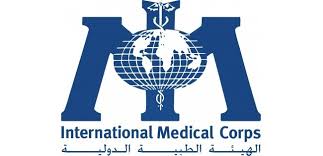
international medical corps - طب وتمريض وصيدلة
An Obstetrician/Gynecologist (Ob-Gyn) primarily focuses on women’s health. Under Obstetrics, the provider is responsible for the health of the mother in the pre-pregnancy phase, as well as the child during the antenatal period, labor, delivery and the immediate post-partum period through direct care, patient education and appropriate referrals. Under gynecology, the provider is responsible for diseases related to the female reproductive tract such including STIs, fibroids, dysmenorrhea, etc.
Obstetricians play a crucial role in ensuring the well-being of both mothers and newborns, and their ability to respond effectively to emergencies is vital in providing optimal care during pregnancy and childbirth.
To perform this job successfully, an individual must be able to perform each essential function with or without reasonable accommodation.
MAIN TASKS AND RESPONSIBILITIES
Prenatal Care
- Conduct regular check-ups and screenings to monitor the health of both the mother and the developing fetus.
- Provide information and counseling to expectant mothers regarding pregnancy, labor, and postpartum care.
- Identify and manage any potential risk factors or complications that may arise during pregnancy.
Labor and Delivery
- Monitor and manage the progress of labor.
- Respond to complications such as fetal distress, prolonged labor, or other issues that may arise during childbirth.
- Perform medical interventions, including the use of forceps or vacuum extraction, if necessary.
- Conduct cesarean sections (C-sections) in cases where vaginal delivery is not feasible or safe.
Emergency Response
- Respond to obstetrical emergencies, such as:
- Preeclampsia- A condition characterized by high blood pressure and organ damage during pregnancy.
- Placental abruption: Premature separation of the placenta from the uterus.
- Umbilical cord prolapses: When the umbilical cord slips through the cervix before the baby during delivery.
- Postpartum hemorrhage: Excessive bleeding after childbirth.
- Shoulder dystocia Difficulty delivering the baby's shoulders after the head.
Neonatal Resuscitation
- Provide immediate care to newborns who may require resuscitation.
- Stabilize and manage the health of newborns, especially those born with complications.
Collaboration
- Collaborate with other healthcare professionals, including neonatologists, anesthesiologists, and nurses, to ensure comprehensive care for both the mother and the baby.
Patient Education
- Educate patients about signs and symptoms that may indicate a problem during pregnancy and encourage them to seek medical attention promptly.
Record Keeping
- Maintain accurate and up-to-date medical records for each patient, documenting prenatal care, delivery details, and postpartum care.
Perform other duties as assigned. The duties and responsibilities listed in this document are representative of the nature and level of work assigned and not necessarily all inclusive.
If you have the necessary qualifications and want to join a successful team, apply for the job.: